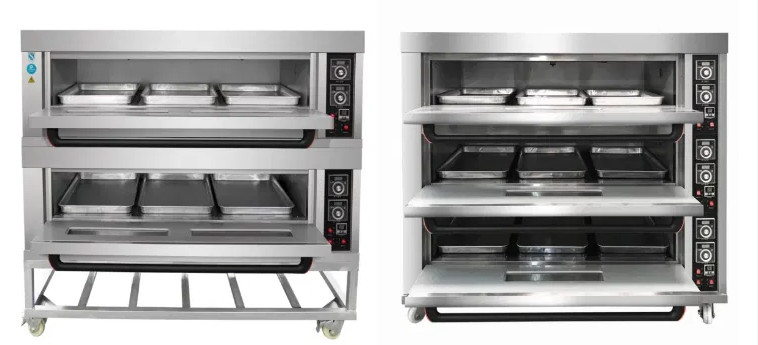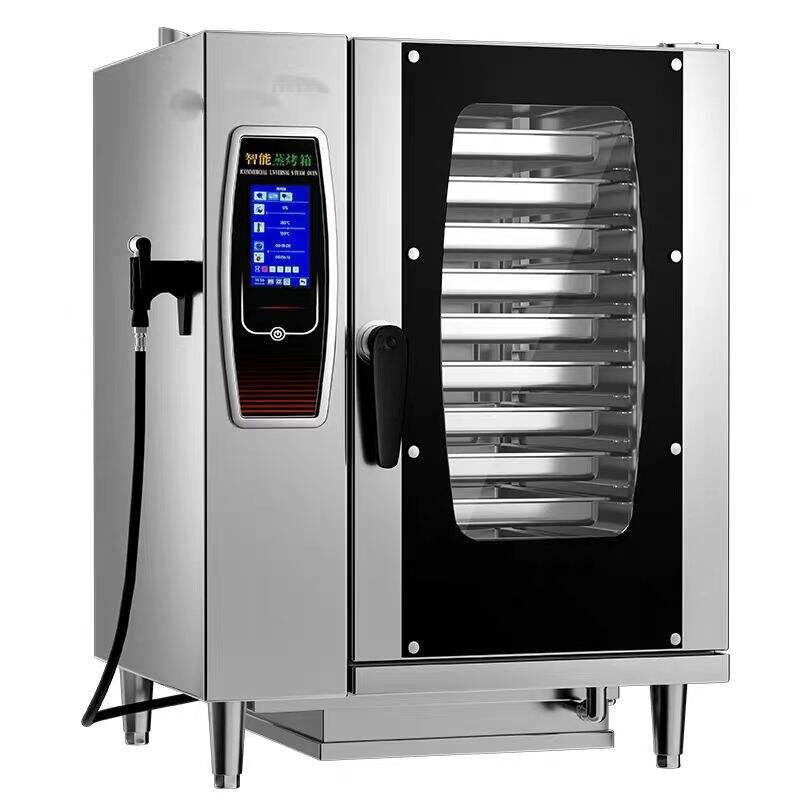The Essential Role of a Batch Oven in Industrial Applications
In industrial manufacturing, precision and consistency are key drivers of success. Among the many tools available to ensure these qualities, the Batch Oven stands out as one of the most reliable and versatile. Unlike other types of heating equipment, a Batch Oven is designed to handle diverse processes while offering uniform results. This makes it a vital part of industries ranging from aerospace and automotive to food processing, electronics, and pharmaceuticals.
What makes the Batch Oven so widely adopted across different industries? The answer lies in its ability to adapt. A Batch Oven can cure, bake, dry, or heat-treat materials depending on production requirements. Instead of being limited to a single application, this flexibility allows manufacturers to respond to changing demands without investing in entirely new systems. In environments where efficiency and accuracy cannot be compromised, the Batch Oven provides both immediate value and long-term reliability.
The Batch Oven is more than just a heating chamber. It is a highly engineered system that balances airflow, temperature distribution, safety, and automation to ensure every cycle meets exacting standards. When companies rely on this equipment, they gain not only precise control over their processes but also peace of mind knowing that quality will be consistent across every batch.
Core Advantages of a Batch Oven
Precision and Consistency
One of the most important advantages of using a Batch Oven is the ability to maintain consistent results. In industries where the slightest temperature variation could compromise product quality, having uniform heat distribution is essential. A well-designed Batch Oven eliminates hot and cold spots, ensuring that every item within the chamber receives the same level of treatment. This advantage is especially critical in aerospace and automotive industries, where material integrity directly impacts safety and performance.
Flexibility for Multiple Applications
Another strength of the Batch Oven is its versatility. It is capable of handling a wide range of processes, from curing composites to drying coatings or even sterilizing equipment. For manufacturers that deal with diverse products, this flexibility eliminates the need for multiple specialized ovens. Instead, a single Batch Oven can be adapted to different tasks, making it both cost-effective and space-efficient.

Operational Benefits of a Batch Oven
Energy Efficiency
With rising global energy costs, efficiency has become a priority for manufacturers. A Batch Oven designed with proper insulation and advanced controls significantly reduces energy consumption while still achieving precise results. Why waste energy on excessive heating when the oven can optimize airflow and maintain steady temperatures? Over time, the savings from improved efficiency can be substantial, turning the Batch Oven into an investment that pays for itself.
Improved Workflow and Productivity
A Batch Oven also contributes to smoother operations within a production line. Its ability to process materials in controlled cycles allows for scheduling flexibility and predictable output. This predictability not only improves productivity but also minimizes downtime. By delivering consistent batches on schedule, manufacturers can meet deadlines more effectively and maintain customer satisfaction without unnecessary delays.
Safety and Control Features of a Batch Oven
Advanced Safety Mechanisms
When dealing with industrial heating equipment, safety cannot be overlooked. A Batch Oven is designed with built-in safety mechanisms such as over-temperature protection, automatic shut-off systems, and insulated exteriors that reduce the risk of workplace accidents. These features are not optional extras but integral components that make the Batch Oven a reliable choice for industries where worker safety and product integrity are priorities.
Control Systems for Precision
Modern Batch Ovens come equipped with programmable logic controllers (PLCs) and digital interfaces that allow operators to set precise temperature ranges, cycle times, and airflow patterns. These advanced controls make it possible to achieve repeatable results with minimal variation. By giving operators better visibility and control, the Batch Oven becomes not just a heating device but a process management tool that integrates seamlessly with other production systems.
Long-Term Value of Choosing a Batch Oven
Durability and Reliability
A Batch Oven is built to withstand demanding industrial environments. With strong construction, advanced safety systems, and low-maintenance requirements, it offers long-term reliability that few other systems can match. Businesses investing in a Batch Oven can expect years of uninterrupted service, making it a dependable backbone of production facilities. The durability also translates into fewer breakdowns, lower maintenance costs, and minimized disruptions.
Scalability and Customization
Every business has unique needs, and a Batch Oven can be customized to meet them. Whether the requirement is for a compact unit for laboratory testing or a large-capacity oven for heavy industrial use, the design can be tailored accordingly. Scalability also ensures that as production demands grow, the Batch Oven remains a relevant and effective solution. Instead of being replaced, it can be upgraded with features such as enhanced controls or automation systems to match evolving requirements.
Applications that Highlight the Advantages of a Batch Oven
The wide use of the Batch Oven across industries is a testament to its effectiveness. In the food sector, it ensures uniform baking and drying that preserve flavor and texture. In electronics, it is used for curing adhesives and coatings that require absolute precision. In aerospace and automotive manufacturing, it delivers heat treatment processes that determine the strength and durability of critical components. In research and development, it provides a controlled environment for testing new materials and processes.
In each case, the Batch Oven is not just performing a function but enabling industries to achieve standards that would be impossible with less precise equipment. Its ability to meet such a broad range of needs highlights why it is considered an indispensable asset in modern manufacturing.
FAQ
What industries benefit the most from a Batch Oven?
Industries such as aerospace, automotive, food processing, pharmaceuticals, and electronics benefit significantly. Each of these sectors relies on the Batch Oven for tasks like curing, drying, baking, and heat treatment.
How does a Batch Oven improve product quality?
By maintaining precise temperature control and ensuring even airflow, a Batch Oven delivers consistent results. This uniformity prevents defects and guarantees that each product meets required specifications.
Is a Batch Oven energy efficient?
Yes, modern Batch Ovens are designed with advanced insulation and control systems that reduce power consumption while maintaining performance. This makes them cost-effective and environmentally sustainable.
Why is a Batch Oven considered versatile?
A Batch Oven can be used for multiple applications including curing, sterilizing, baking, and drying. This versatility allows manufacturers to adapt it for different processes without needing multiple specialized ovens.


